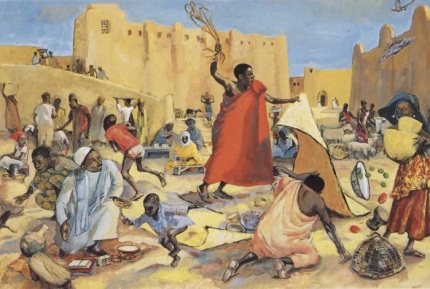Living God's Graciousness and Generosity
This Lent we continue reflecting on whose are we using or four words, who are we as people marked by those four words, and what is ours to do in light of all that.
This week we are given the Decalogue - the 10 words or 10 commandments from Exodus - We too easily read these as legalistic or moralistic which need to be obeyed to earn something. Howard Wallace says they “were given so that people may live fully together and before God. They were not given so that people may be worthy to come into God’s presence. On the contrary … they are given after God liberated his people from Egypt and led them in the wilderness. Law or torah in the Old Testament, is always a way to live in the presence of the gracious God who first comes to us in our despair and need. They are also a reminder that living in the presence of this God brings responsibility toward God and toward all God’s creation.” 1 The 10 words are the way God shape the people of God to live out God’s graciousness and generosity for all people – that they might be blessed to be a blessing.
Our gospel is John’s version of the clearing of the Temple. There are big differences between how John tells this story and how Matthew, Mark and Luke do. One is that this story is placed right at the beginning of Jesus ministry, not at the end. It sets the tone for what happens next rather than being the reason for Jesus’ arrest and execution. Another is that John is less concerned about the corruption in the temple and more about making a huge theological point – that the glory/presence of God, God’s graciousness and generosity, is in the person of Jesus – the Word made flesh. Remember John is writing long after the destruction of Jerusalem and his community is grappling with where God’s presence is to be found now temple is gone. John’s answer - God’s graciousness and generosity is found in Jesus. And through the crucifixion, resurrection and ascension, God’s graciousness and generosity is in us! How then do we live as God’s graciousness and generosity today?




Comments